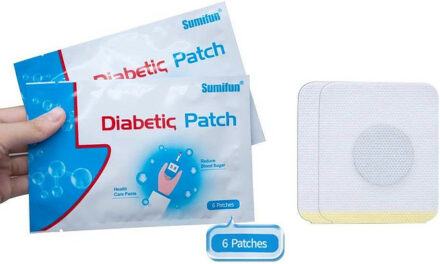What is activated charcoal? What makes it so unique? Since it can be used in the medical emergency rooms as a treatment for poison, drug overdose, and for removing toxins from the body, can it also be used by patients with a chronic disease like diabetes? Is activated charcoal good for diabetics?
We are about to find out answers to all those questions…
Most of us may have heard or used a product or more containing activated charcoal. You may have seen them in supermarkets, beauty, and health stores. And, you may be wondering what’s up with all these activated charcoal creams, toothpaste, ice cream, smoothies, face masks, tablets, and lists continues… Are they really safe?
For centuries, charcoal has been used around the globe as an antidote because of its unique cleansing properties. It is used for environmental, industrial, chemical, beauty, and medical applications.
It has been used for decades as an antidote for many ailments ranging from food and drug poisoning, body odor, diarrhea, bloating, and indigestion.
Because of its ability to adsorb toxins and even nutrients in the digestive tract, most people believe it can also adsorb glucose, boost the immune system, and lower blood cholesterol which is a precursor for diabetes and a risk factor for cardiovascular disease.
What a belief… isn’t it? But’s that not all untrue…
Let’s find out more after defining activated charcoal, so we all are on board with what we are talking about.
What is Activated Charcoal?
Activated charcoal, also known as activated carbon or medicinal charcoal, is a type of charcoal made from burning carbon-rich materials like woods, bamboos, peat, coal, born char, sawdust, coconut shells, petroleum coke, or olive.
The material is burnt under low oxygen concentration to eliminate water, hydrogen, tar, and methane, leaving the regular charcoal. This charcoal is then activated by processing it under a very high temperature or using chemicals to eliminate any other non-carbon elements remaining.
The high temperatures change the structure of the charcoal by freeing up the carbon bonds, reducing the pores sizes, which makes it more porous than the normal charcoal. We all know and increases the surface area for chemical reactions or adsorption.
Freeing up the carbon bonds allows the carbon to bind to other molecules and atoms. This makes it effective in adsorbing toxins in water and air. Activated charcoal is used medicinally as an antidote for poisoning, kidney problems, skin diseases, and wound dressing.
It is also used in water filtration and air purification.
The Difference Between Activated Charcoal And The Regular Charcoal
Activated charcoal or activated carbon, and regular charcoal, which is also known as charcoal briquettes, are both
- Obtained from the same based material
- Porous
- Adsorbent, and
- Used in filtration.
But, both of those types are not the same. The difference between activated charcoal and regular charcoal are stated in the table below.
|
Activated charcoal |
Regular charcoal |
|
Activated by steaming it under high temperature |
Not activated |
|
More porous and has a larger surface area than regular charcoal for adsorption of impurities |
Not as porous as activated charcoal |
|
100% pure amorphous carbon without impurities |
Contain additional substances that are toxic to human |
|
Mostly used for medicinal and skincare purposes |
Mostly used in metallurgy and as a source of fuel for cooking and barbecues (BBQ). |
Uses of Activated Charcoal
- In dentistry, they are used for teeth whitening
- Purifies electroplating solutions and restores plating performance to the desired level.
- In the medical field, activated charcoal is used as an antidote for poison and trading drug overdoses.
- In many countries, activated carbon tablets or capsules are used as an over-the-counter drug to treat indigestion, diarrhea, and flatulence.
- In patients with kidney diseases, it may help improve the function by promoting the elimination of toxic waste products.
- It may help to lower the level of cholesterol.
- Use to cure a hangover.
- Activated carbon is usually used in water filtration systems, in purifying polluted water bodies or air both in the field and in industrial processes like drinking water filtration, groundwater remediation, oil spill cleanup, sewage treatment, and air purification.
- Activated charcoal can be used when distilling alcoholic beverages like vodka and whiskey to filter out immorality.
- Use in storing natural gas like methane and hydrogen gas.
- Use in solvent recovery.
- Use in the extraction of metals and purification of gold.
- Use in decaffeination.
- Use in the production of hydrogen chloride.
- As a treatment for acne, and snake and insect bites.
The Use Of Activated Charcoal For Detoxification
When we take activated charcoal, one of the things it does is detoxify the body.
Our body has the natural ability to protect itself by eliminating (detoxifying) toxic substances we are exposed to. The liver, kidney, lungs, skin, and colon are all organs that help detoxify our bodies.
By so doing, they help boost our immunity, prevent diseases like diabetes and keep us strong and healthy.
With the increased rate of air, water, and land pollution, we are constantly exposed to harmful substances in our environment, such as,
- Chemical toxins
- Heavy metal
- Pesticides
- Herbicides
- Heavy metals
- Additives and antibodies in our food supply.
Aside from these harmful substances in our environment, we also have to deal with endogenous toxins created by the bacteria and yeast in our guts.
When our bodies are exposed to more toxins than they can easily eliminate, the body will no longer be able to heal as it should. This is because the toxins have altered the body’s metabolic process. Consequently, it becomes difficult to lose weight (or effectively manage diabetes), so the body will begin to store the excess toxin as fat in the fat cells.
Clinically, because activated charcoal is considered an effective adsorbent, it is used in emergency rooms to treat acute or severe poisoning or overdose of substances.
It is also important to note that activated charcoal is not effective and can’t be used to treat all cases of poisoning.
Some of the toxins activated charcoal can not treat or adsorb are:
- Petroleum substances (e.g. kerosene, coal oil, fuel oil, cleaning fluids, or paint thinners)
- Corrosive substances (e.g. alkalis)
- Alcohols (e.g. methanol, ethanol)
- Acidic substances (e.g. boric acid, iron, or lithium)
- Electrolytes (e.g. sodium, potassium, or magnesium)
- Heavy metal
- Cyanide
How Can Activated Charcoal Benefit A Diabetic Patient?
Activated charcoal helps people with diabetes to detoxify the body by adsorbing most harmful toxins from the gut, urea and bloodstream and removing them from the body through feces.
These excess toxins, which are stored as fat cells, will not only result in weight gain and obesity but will also affect the
- Hormones
Especially the ones involved in metabolism, which includes insulin, ghrelin, leptin, cortisol, and thyroid.
- Metabolism
The toxins will alter our metabolism, damage the enzymes that affect fatty acid oxidation and thermogenesis, reducing the body’s ability to burn fat.
- Blood sugar
It alters the ability of our bodies to maintain balanced blood sugar levels resulting in diabetes.
- Insulin resistance
The excess toxins can increase inflammatory mediators, resulting in insulin resistance and affect our appetite.
The excess toxins add more workload to the liver.
Detoxifying our body will help to boost immunity, and the metabolic process will start working properly as it should. This will help the body to start healing itself and losing the extra weight.
Also, activated charcoal can be used as a treatment to lower elevated blood cholesterol levels, which is one of the precursors of diabetes.
Does Activated Charcoal Absorb Glucose?
There is a belief that activated charcoal can reduce blood glucose levels by adsorbing glucose in the gut and bloodstream when taken. This belief is based on the fact that activated charcoal, when taken, can adsorb almost everything we ingest into our body – toxins, drugs, and even vitamins from our meal.
But is there any fact to back up this claim? No! Instead, research carried out on 57 poisoned patients shows that activated charcoal that after administering the activated charcoal, 82 % of the patients had increased blood glucose levels. However, the increase in their blood glucose level was not clinically significant but are comparable to the increase in blood glucose level after breakfast.
So if you are looking for a supplement to lower your blood sugar level – consult your doctor.
How Activated Charcoal Interact With Diabetes Medication?
Since activated charcoal can be used to treat drug overdose, it means it can interfere with how your medication works. Activated charcoal can hinder or reduce the absorption of many over-the-counter and prescription medications into the bloodstream by binding with them in the gut.
If you are on diabetes medication and plan to take activated charcoal either as a supplement for a healthy lifestyle or to lower your cholesterol, always have it in mind that activated charcoal can bind and adsorb almost anything taken into your stomach.
Some of the diabetes medications activated charcoal can interact with are:
- Metformin, Miglitol, and Acarbose for controlling high blood sugar,
- Statins for high blood cholesterol,
- Beta-blockers
- Blood pressure drugs.
To ensure that the activated charcoal you are taking is not interfering with your medication and nutrients, it is advised that you take the activated charcoal at least 1 hour before or 2 hours after your meals, medications, or supplements.
Also, note that activated charcoal is not FDA approved for treating any medical condition. So make sure to consult your doctor if you are on diabetic medication or taking any prescription drugs before taking activated charcoal.
What Does Research Say?
According to research, the likely cause of the diabetes epidemic is the ever-increasing loads of toxins in the body for exposure to persistent organic pollutants (POPs). These toxins are difficult to get rid of from the body. One way to help the body easily detoxify and eliminate these toxins is by using activated charcoal.
High cholesterol levels and diabetes are two risk factors for cardiovascular disease. Both can always occur together. And Just as high blood cholesterol increases the risk of diabetes, diabetes also increases the risk of elevated blood cholesterol levels.
One way to both conditions is to maintain a healthy lifestyle and monitor your cholesterol level.
Activated charcoal, according to research, can be taken to lower blood cholesterol level. According to a study, charcoal can absorb some of the bile acids in the stomach and prevent them from being absorbed by the human body. The study shows that activated charcoal reduces triglycerides and low-density lipoprotein (bad cholesterol), and elevated high-density lipoprotein (good cholesterol). This makes it a possible treatment for high cholesterol levels.
Dosage
Activated charcoal is available in different forms – powder, granules, paste, tablets, capsules, suspension, and Pellets (for suspension).
If you are interested in trying it, it is very important that you stick to instructions on the dosage. The dosage differs depending on the condition it is being used for, the weight, and the age of the patient.
- For drug overdose, a dosage of 50–100 grams of activated charcoal for adults and 10 –25 grams for children can be administered by a medical doctor, within an hour of the overdose.
- To treat fishy odor disease, a dosage of 1.5 grams can be taken daily.
- For other conditions like reducing cholesterol and boosting kidney function in end-stage kidney disease, 4–32 grams can be taken daily.
Risks And Side Effects
Because it has little or no adverse side effects, the use of activated charcoal is considered to be generally safe in most cases. Some most common side effects people complain of are
- Nausea
- Vomiting
- Diarrhea
- Constipation
- Black stools
- Blockage of the digestive tract.
Although it is rare, there are few cases where activated charcoal may cause severe side effects in some people.
Some of the risks of consuming activated charcoal are:
- It can hinder food digestion and the absorption of nutrients in the body. Therefore, taking activated charcoal regularly may result in malnutrition or nutrition deficiency.
- It can reduce the effectiveness of medications and supplements.
- It may aggravate symptoms in individuals with variegate porphyria unusual genetic disease that affects the skin, gut, and nervous system.
- Activated charcoal can cause dehydration. So it is necessary for you to drink two to three litres of water daily, especially if you are taking activated charcoal. This will keep you hydrated and help wash the toxins and charcoal out of the body.
- It may travel into the lungs instead of entering the gut, causing aspiration pneumonitis. This can easily occur if the patient is vomiting, sleeping or unconscious.
Precautions
Although activated charcoal is considered to be generally safe because of the risk involved, it is important that
- Activated charcoal should be administered in a healthcare facility.
- If you suspect that you have overdosed, call the emergency room immediately and for instructions. Do not try to self-administer activated charcoal for poisoning or overdose unless if you are directed by a professional to do so.
- Stick to the direction of the doctor if you have been directed to use it.
- Seek immediate medical help in a case of drug poisoning. This is because medical charcoal cannot adsorb every type of poison.
- Do not use activated charcoal for a long-term purpose
- Activated charcoal should be given to only individuals who are fully conscious of reducing the risk of aspiration pneumonia.
- The activated charcoal powder may cause corneal abrasion if it enters the eyes.
- Since activated charcoal can cause constipation, it should not be taken together with drugs for constipation
- Since activated carbon can reduce the absorption of some specific drugs and nutrients from the digestive tract, you must consult your doctor before taking a charcoal pill, especially if you are on any medication.
Conclusions
Activated charcoal is a type of amorphous carbon used in different fields for different purposes. It industrially and in the field of environment for water filtration and treatment of air and water pollution. In the field of skincare and beauty, it is being used for treating acne, for clear skin and whitening the teeth. Because of its remarkably high surface area that allows it to bind to most toxins and drugs in the gut, it may prevent them from being absorbed into the blood. It has been used for decades as an effective antidote for most poisonings and substance overdoses.
When it comes to diabetes management, although there are no studies to prove that activated carbon can lower blood glucose levels, there are early studies that suggest that it may lower blood cholesterol and triglycerides. Although it is generally considered safe, activated charcoal may cause unpleasant side effects to some people and may interfere with the absorption of some medications.
So if you are on any important medication and intend to take it to help lower your cholesterol, make sure you consult your doctor.
We do not recommend people with diabetes use activated charcoal.











